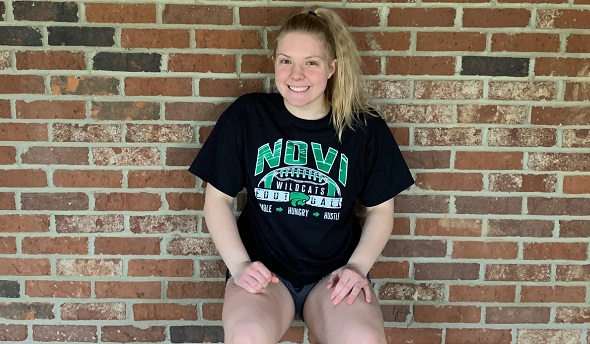
Pandemic Planning: Creating a Schedule
December 15, 2020
By Stacy Leatherwood Cannon, M.D.
Henry Ford Health System
With coronavirus continuing to grab headlines and physical distancing orders still in place, every day tends to feel the same.
More parents than ever are working from home, have reduced hours or may even be out of work due to the pandemic. Those who are working at full capacity may feel the strain of trying to balance work and childcare. Many schools and extracurricular programs have been moved online or canceled.
With both parents and kids feeling the stress of new daily routines, it's more important than ever to create a schedule that all family members can follow.
Staying On Schedule
When schedules are off (particularly sleep schedules), children and teens may be at greater risk for depression and anxiety. Younger children may act out because they have increased energy with no outlet. The good news: Creating a schedule — and sticking with it — can help everyone feel more grounded.
Children thrive with an understanding of the daily routine. Knowing what to expect and what they need to do reduces anxiety and helps kids feel more in control.
A few ways to achieve an effective schedule:
• Make it a family affair: Instead of drawing up a schedule and expecting everyone to stick to it, involve your children in the process. Call a family meeting where you come up with sleep and waking times, mealtimes and breaks. Kids are more likely to embrace a new schedule if they played a hand in creating it.
• Enforce bedtime: Children doing remote learning may not have to rise as early to make it to school on time. Even so, it's important to set a regular bedtime so they can remain on task during daylight hours. Your best bet: Establish a bedtime routine that includes calming activities (like a bath and reading) and ensure your children go to bed at an appropriate hour. School-aged kids should get about 9 to 10 hours of sleep each night.
• Stick to mealtimes: Keeping mealtime consistent allows for a structured break where kids and parents can reconnect and troubleshoot when necessary. This is especially important with older adolescents who may work independently during the school day. Unfortunately, what works for one family member may not work for another. Ideally, families should work together to establish mealtimes, then adjust based on each individual's needs and assignments.
• Encourage breaks: Kids and adults alike become zombie-like after sitting in front of a screen for extended periods. For children who are distance learning, frequent breaks are especially important. The younger the child is, the more breaks they need to stay engaged. That said, even older kids should take breaks every 30 minutes or so to walk around, get a snack and do some simple stretches. Better yet, take your breaks together and do some jumping jacks or share a snack as a family.
Successful Scheduling
Coming up with an effective schedule that the whole family can follow is not something you do at the last minute. Plan for the week ahead over the weekend. Sit down as a family and discuss what worked — and what didn't — the previous week. Then tweak as necessary.
Most important, be patient. These are unprecedented times for all of us. And while we have months of experience dealing with this pandemic, transitioning back to school has brought new challenges.
Try to shift your focus toward the perks of this experience. This is a rare moment in history when families can come together and spend a lot of quality time together. It could be a time of growth and transformation for your whole family.
Concerned about how your children are managing the pandemic? Help is available. To find a doctor or pediatrician at Henry Ford, visit henryford.com or call 1-800-HENRYFORD (436-7936).
Stacy Leatherwood Cannon, M.D., is a board-certified pediatrician and the physician champion for childhood wellness for Henry Ford LiveWell. She sees patients at Henry Ford Medical Centers in midtown Detroit and Sterling Heights. Learn more about Dr. Leatherwood Cannon
PHOTO: Novi's Abigail Pheiffer, a senior on the MHSAA Student Advisory Council, gets in some wall sits during a break in her day.

Coach's Guide to Nutrition: Pre-Workout Snacks
September 10, 2024
Heading into practice or a game under-fueled may take away from athlete performance. Encourage student-athletes to not only eat regularly throughout the day, but to have a small, carbohydrate-focused snack about 30-60 minutes before activity. This will top off their energy stores so they are ready to hit the field.
Pre-workout snacks don’t have to be complicated. Choose easy, high-carb snacks that can be stored safely in a gym bag.
Snacking can be detrimental when done out of boredom or in place of regular, balanced meals. But, for an athlete, healthy snacks can aid performance and recovery.
In planning to eat every 3-4 hours, a mid-morning snack may be ideal. Having a snack in the hour or two before practice and in the ‘window of opportunity’ following practice can help maintain energy levels and ensure proper recovery.
Work with your athletes to create simple snacks that are easy to transport. Encourage athletes to include a carb and protein in each snack when possible. Fresh fruit, granola bars with 8-10 grams of protein, or trail mix that includes nuts/seeds and dried fruit are easy to keep in a gym bag and relatively affordable. A small cooler with an ice pack is a great way to keep snacks cold and fresh.
Snacks are important to maintain energy between meals, before exercise and after workouts. Snacks before and after exercise help performance as well as aid optimal recovery. Try to include carbs and protein in every snack.
Information above is excerpted from UDIM’s A Coach’s Guide to Nutrition.



